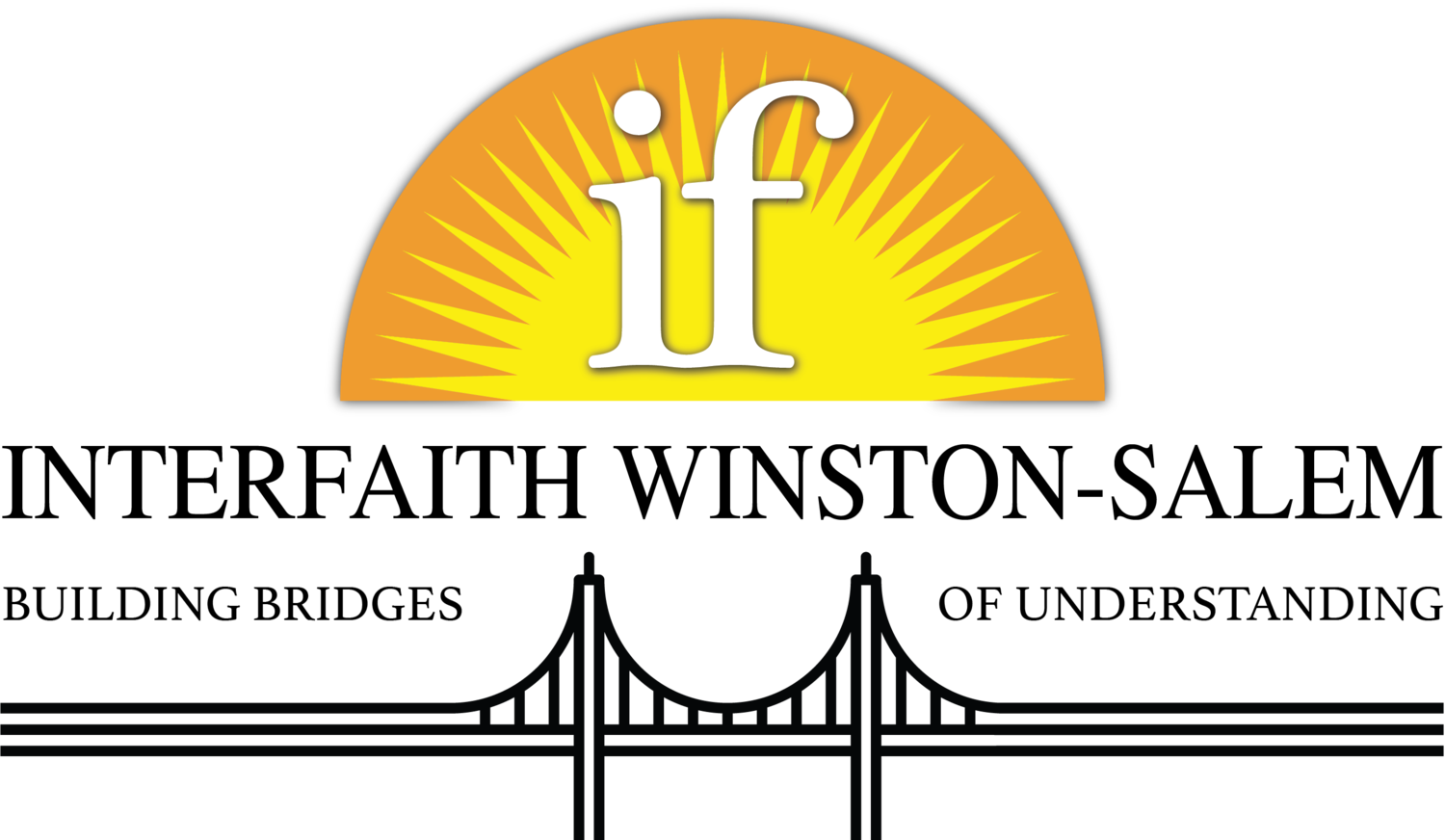By Rose O’Brien and Jerry McLeese
Two days before the U.S. Presidential election, Interfaith Winston-Salem opened the doors for its fifth annual Children’s Festival of Faith and Culture, and a rainbow of Americana streamed in. Christians, Jews, Muslims, Hindus, Buddhists, Unitarian Universalists, atheists, Wiccans and some of no particular religious persuasion. They were black, brown and white; gay and straight; old and young; rich and poor. They were recent refugees from Syria and neighbors who have lived here for decades. More than 325 people in all.
Then, four days following the election, Brendle Recital Hall and Davis Field at Wake Forest were filled with a resounding welcome to immigrants during “Wake Refugee Day.” This student-conceived celebration embraced refugees and community members from Ethiopia, Syria, Cuba, Iraq, and many others – over 450 guests in all.
Rather than a melting pot of different cultures, these events were a salad bowl of ethnicities, languages, and faith traditions. Dissonance from election rhetoric was put aside in favor of compassion and neighborliness. Difference was embraced and celebrated. It was America at its best, as it can be.
At the interfaith festival, children from Speas Elementary School sang and danced to global tunes. Adults and children together spiraled around the floor in a chain of humanity. Others sat and listened with smiles on their faces to Hare Krishna chants and the haunting sounds of a didgeridoo.
Muslim children fashioned Jewish menorahs from popsicle sticks and yellow construction paper with the help of Jewish youth. Jewish children marveled as Muslim youth applied henna tattoos to their arms. Mexican parents watched as their children chose phrases representing family values prepared by adults at the atheist booth. More than 100 children made silver chalices at the Unitarian Universalist table. Thirteen arts and crafts tables representing different traditions were surrounded throughout the afternoon and children and adults circulated around the room.
During Wake Refugee Day, tables were loaded with ethnic foods from local families and restaurants including Nawab, 1703, Mooney’s Mediterranean, and Camino Bakery. Local Egyptian chef Shereen Abdelfatteh brought trays brimming with golden brown baklava, and the new catering company SyrianCuisine provided traditional Syrian cookies. Student groups such as the Habesha Student Association displayed cultural wares alongside local refugees from Myanmar and Ethiopia, who sold Ethiopian coffee and Burmese jewelry.
The main event was a panel of refugees from Iraq, Ethiopia, and the Democratic Republic of the Congo, moderated by Maria Henson of Wake Forest. They shared moving stories of displacement and war, followed by light-hearted moments talking about American food and North Carolina weather. Following their stories was a speech by Persian martial arts master, Dr. Heshmat Shokrighadi. He expounded upon his 36 years of experience, followed by a short demonstration by his son Shahin, and powerful spoken word poetry by his daughters Marzieh and Atoosa. To finish the day off, guests watched a short documentary about a Congolese refugee who becomes an advocate for women worldwide.
We can hope that these days were a demonstration that a community like ours can survive and thrive without the narrowness, hate, and fear that sometimes nag at our baser instincts. We have seen the possibilities through the variety of programs offered by Interfaith Winston-Salem: a breakfast club where individuals share their stories, a conversations gathering where we explore issues of faith, a book club where we share insights from our personal experiences, a tour of worship centers where we shed ignorance for understanding, and a series where we dig into topics like religious extremism and refugee relief. At Wake Forest, the Pro Humanitate motto – use knowledge, talents, and compassion to better the lives of others – permeates the campus philosophy.
All of these opportunities invite us to walk in the shoes of “the other,” to move outside our limited understanding and experience. When the mayor and City Council unanimously endorsed the Charter for Compassion three years ago, Winston-Salem became one of first 20 cities in the world to signify that the Golden Rule – treating our neighbor as we would like to be treated – will be a philosophy that binds us together.
Each of us is a stranger to someone else. As we reach out to those who are different from us – in nationality, in language, in religion, in political position and in many other ways – the stranger becomes our neighbor. We avoid the spiral of ignorance, mistrust, hatred, and violence. Instead, we move from a place of ignorance to a place of understanding, respect, justice, and peace.
(Rose O’Brien, a student at Wake Forest University, organized Wake Refugee Day. Jerry McLeese is founder of Interfaith Winston-Salem.)
